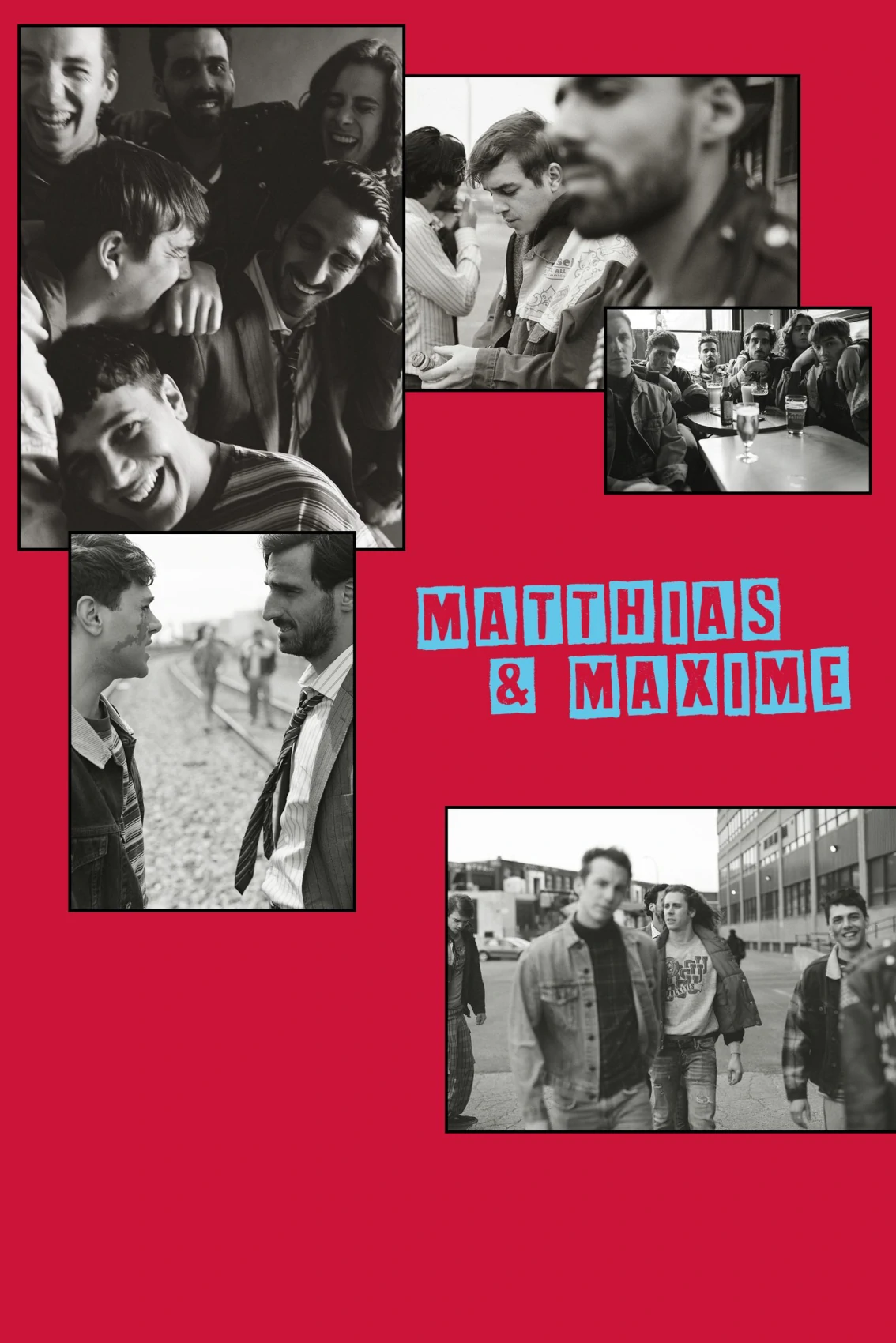
Matthias & Maxime: Exploring the Shock of Small Changes
Words By Armandt Malan
Spoilers Ahead!
Xavier Dolan’s 2019 film Matthias & Maxime presents as an exploratory queer story. The film follows two twenty-something male friends as they navigate the disruption caused by a kiss on the eve of a departure. While queer themes are undoubtedly infused throughout the film, its main focus is not the fluidity of sexuality, but rather the emotional implications of change. Dolan chooses to present these changes through the lens of identity and its exploration, but ultimately moves past it to investigate disruption on a deeper, more universal level.
The characters in Matthias & Maxime are all in their mid to late twenties, a time traditionally seen as one of increasing stability, when young adults are meant to be carving out a place for themselves and setting up their lives to comfortably enter middle adulthood. However, the film disregards this notion in favor of asking questions. These questions are all geared towards self-exploration and examining the conventional path to take. Things which, many would argue, one generally takes on during the painfully awkward adolescent phase.
But the purpose of the film isn’t to provide the space for a dramatic, life-changing, exploratory coming-of-age story as often seen in films with queer, teen protagonists. Rather, it seeks to examine what happens when someone who, by all accounts, has submitted to the status quo and treads the path most taken, spots a flaw in their plan. What happens when a friendship, long-standing and rivaling the greatest of brotherhoods, is suddenly seen in a different light? What happens when an infinitesimal part of that friendship changes out of the blue?
The audience is meant to ponder these types of questions themselves, using Matthias as their vehicle into this world of reconsideration. Through his growing discomfort and dissatisfaction, we see the domino effects this small change has. First, he is thrown into doubt about the nature of his platonic fraternal bond with Maxime after they kiss for a student film. Next, he begins to question how true the happiness he has felt up to this point in his long-term, heterosexual relationship really is. Cautiously, and much to his chagrin, he begins to identify this dissatisfaction in other parts of his life. He senses it in the monotony of his workplace, moving uncomfortably through encounters with his boss and later, with the misogynistic and insufferable McAfee. Given the latter’s high-ranking position and the fact that Matthias must wine, dine, and impress him during his visit, the viewer must regard McAfee as an aspirational figure, someone who Matthias must see himself becoming sooner rather than later.
Modern society is increasingly beginning to disregard the steps along which life must supposedly be lived. However, adherence to the conventions of yesteryear is still expected and enforced the world over. Wherever capitalist ideals form the foundation of society, this progression of life is still to be found. In these societies, when young adults come to be the age of the film’s protagonists, the expectation is that they must, in much the same way as Matthias, be settled, or well on their way towards it. They must occupy well-earning positions, be actively pursuing long-term, monogamous relationships and have a set plan for the next forty years of their lives.
Often in film, we see the disruption of these conventions in ways that are much more dramatic, much more cinematic. In other coming-of-age films, the protagonist defies societal expectations, breaking free in a heart-wrenching climactic scene, frequently complete with an emotional, tear-filled speech. Matthias & Maxime has its characters ask the same questions about identity as their teenage counterparts but does so in a much more grounded, more realistic way.
In life, change rarely happens in ways worthy of committing to film. Changes often manifest through subtleties, which are usually small, but nonetheless meaningful. This film represents those same subtleties. There is no intensely dramatic, catalyzing event through which the protagonist must endure. Instead, there is a simple kiss and subsequently, a perceived shift between these two closely bonded souls. The most realistic part of the portrayal of this change, lies perhaps in its imperceptibility. Almost no one outside of the core two is aware of the change that has occurred, and if they are, they don’t seem to care. It is only Matthias who has internalized this event and allowed it to shake him to his core. For the rest of the world, it is an unremarkable, non-event, again highlighting the film’s grounded thematic approach. We tend to view our problems and the anxieties that accompany them as things that are capable of shifting the planet’s very axis, when for eight billion others in the world, there has been no hiccup at all.
While Dolan concludes the film with the joyful reunion of the two friends-turned-assumed-lovers, the film’s exploration of change invites the viewer to take the questions home with them. What happens in real life when these small, yet powerful changes occur? How are we equipped emotionally to deal with them? When life throws us off the path we were expecting to take—as it so annoyingly and frequently does—are we truly ready to look at what that means, and how we might have to change? Matthias & Maxime does not seek to answer these questions for the viewer, nor is it particularly inclined to furnish you with any sort of preparation to tackle them. Rather, the film serves as a sort of case study that the viewer can use to aid them in their own exploration. The film, above all, tells a human story and ultimately invites the audience to look at their own stories and perhaps change the way they are told—albeit with less time spent pressed up against a tarpaulin.